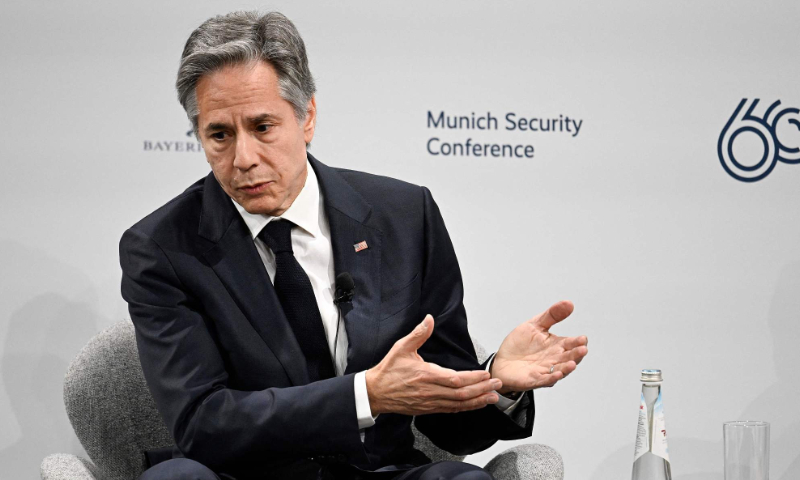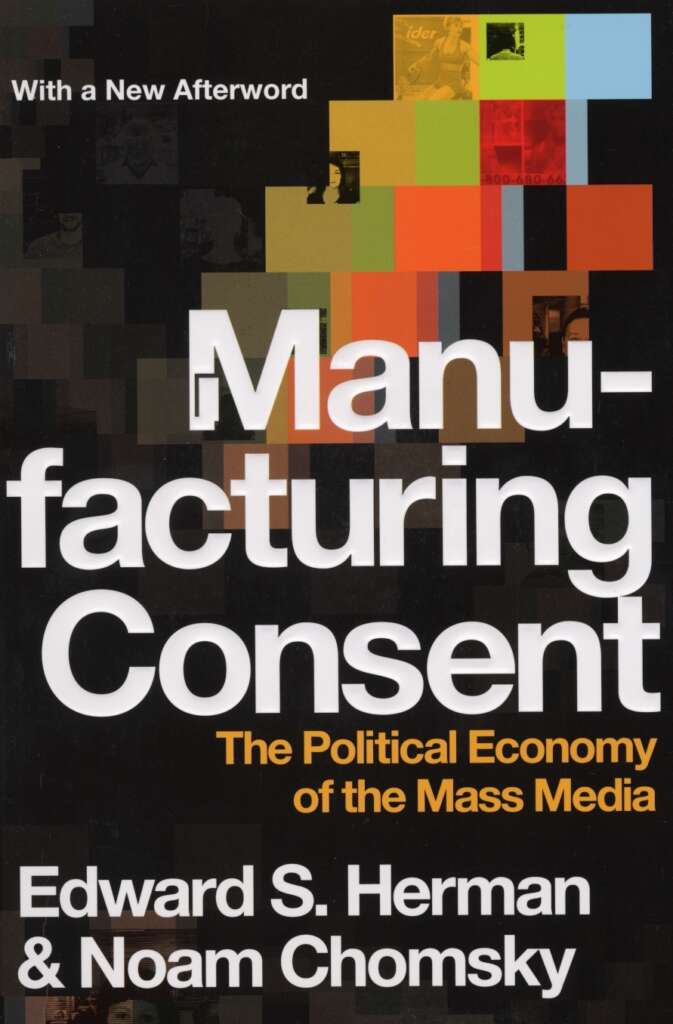THIS ESSAY CONSIDERS the topic of mouthpieces in “the global west”.
First, definitions.
What is a mouthpiece? Where the Mainstream Western Media (MWM) is a primary source of our understanding of life on Earth, it is not difficult to find an answer to this question. Although slanted, it will be a clear answer. You can also expect the answer to be presented as an example of objective (Western) fact in order to deflect your attention from the tilt.
Thus, pursuant to this Western, categorical-narrative, the People’s Daily is, naturally, a mouthpiece of the Communist Party of China, as are the Global Times and the China Daily, while RT (Russia Today) is a primary Moscow mouthpiece. And so on.
Meanwhile, we discover that the Qatar-based Middle East broadcaster, Al Jazeera, is “a mouthpiece of terrorist organizations” according to the Middle East Media Research Institute (MEMRI) (see: this link.) Then we discover that MEMRI is a media-monitoring organization set up by a former Israeli military spy and an Israeli-American political scientist (see: this link.)
Next, what do we mean by the Global West? In 2022, in the Financial Times, Gideon Rachman said that:
In its efforts to win what President Joe Biden calls a “contest for the future of our world” with China, the US is increasingly looking to an international network of allies, which can loosely be called the global west.
Gideon Rachman, Financial Times
We have here a useful, fresh geopolitical term indicating a broad combination of nations mainly (but not exclusively) European: who are pleased to acknowledge the sole-superpower eminence of the US; and who want to see that hegemonic status sustained indefinitely.
This dominant standing is ultimately grounded within the exceptional Age of European Imperial Exploration dating back to the 15th century. It is, moreover, a status that is braced by a flexible Washington-shaped, unwritten geopolitical-constitution called, the Rules-Based International Order (RBIO). Supporters of the RBIO remain understandably fervent. The increasing number of RBIO critics worldwide regard it, however, it as a self-seeking travesty of international ordering (see here).
INTIMIDATING EXPECTATIONS
Incredibly, looking back, China was once expected, post-1980, to be drawn into the same Coca-Cola-orbit as Japan and become a marvellous, wealth-producing, huge quasi-colony within the RBIO framework. However China, which now has an economy over 40 times larger than it once was, maintained its own independent, trade-beats-war, distinctly constructive ideas about its place in the world (see: here).
In the US-led Global West, trepidation displaced expectation as China looked more set than ever to create a remarkably thriving, self-determined future for itself. Consequently, the collective desire to ensure that past Euro-dominance extends resolutely into the future – led by America – has intensified.
Very recently, the US Secretary of State Antony Blinken verified the centrality of this perspective with a rather fearsome public observation in Munich: “If you are not at the table [with America] in the international relations system, you are going to be on the menu.”

This was widely seen as the US verbally strong-arming certain follower-nations who were avoiding taking sides with America in its project to contain China (see: here).
Naturally, America thinks this RBIO-shaped worldview is pivotally correct – and good for the world (never mind what the world may think). Broadly, Western Europe (including the UK), all of the Five Eyes security alliance (including Australia, Canada and New Zealand) and certain states massively garrisoned by the US, like Japan and South Korea – or massively supported, like Israel – comprise the dominant remainder of this Global West group. Hence, today’s primary imperial state, the US, former, traditional imperial states and certain settler-colonial offshoots are the ascendent powers within the Global West.
BRANDING TIME
For the MWM, it is typically enough to satisfy use of the mouthpiece label that an alternative news outlet is publicly owned or controlled by a (non-aligned) non-Western government, which has not been selected using a Western-approved electoral system.
Another adverse term regularly associated with this branding is authoritarian government, which is contrasted with robustly marketed, Western procedural democracies. Ultimately clinching, however, is the idea, often made explicit, always implicit, that these non-democracy-blessed mouthpieces invariably advance a particular, government-minted worldview that challenges the long-anointed, insistently marketed Western worldview.
Of greater interest, though, is the acute impact on China-responses across the MWM over recent years – and how this informs us about the intensifying role of Global West mouthpieces. The heightened anxiety felt about the rise of China is viscerally shared by the MWM. However, before we discuss this, it is useful to consider, briefly, another geopolitical term: soft power.

Explanations of soft power typically draw on the seminal analysis by the Harvard political scientist Joseph Nye (pictured), who promoted the term in his 1990 book Bound to Lead: The Changing Nature of American Power. Soft power is said to rely on culture, performance, political values, and foreign policy to achieve geopolitical change through example and persuasion. What Nye could have stressed in his influential book was the need for intense and continuous marketing of identified American soft-power advantages – using its unmatched media assets. He regarded this pivotal promotional aspect as being an intrinsic facet of soft power, where it plainly looked more like a separate selling through the media, of certain (soft power) values and examples (see: this link).
Western soft power does, of course, encompass an extended catalogue of excellent writing and motion picture production, inter alia. However, even a superb film such as David Lean’s Lawrence of Arabia, which won seven Oscars in 1963 (including Best Picture and Best Director), is visibly anchored by a Western perspective as it reviews remarkable aspects (both negative and positive) of the British role in shaping the Middle East.
MULTIPYING MOUTHPIECES
It is true that these MWM outlets are mainly privately owned and profit-driven. This, however, does not matter when we begin examining who or what is a mouthpiece, based on studying performance (rather than assertion). As Herman and Chomsky explained in 1988 in their groundbreaking book, Manufacturing Consent: The Political Economy of the Mass Media, producing Western propaganda for mass public consumption in the US (and across the Global West) can be very profitable for private media outlets. They make money and satisfy their pre-prepared readers (see: here).

Still, perhaps there is a problem with coordinating a given range of Global West Media outlets so that they all “sing from the same song sheet”. As it happens, Gore Vidal confirmed, in a 1995 New York Times interview, that this challenge is more imaginary than real. There is no need for any “conspiracy” he observed, continuing that: “They don’t have to conspire because they all think alike – I mean who runs The [New York] Times and Harvard and the State Department and Hollywood? The country has always been an oligarchy of money.” Next Vidal noted that: “[T]he Governor of New York and the President of the United States, these are people that you hire, that you pay for, and then they do what you want them to do” (see: here).
WESTERN PUSHBACK
Unsurprisingly, leading Western media outlets earnestly advance a contrary narrative. Thus in 2020, the New York Times (NYT) explained that US news organizations were, in contrast to those from China: “fully independent and [they] report on China as dispassionately and honestly as they do on the American government”.
Moreover, the Voice of America, which is publicly funded, was characterized by the NYT as being committed, by its charter, to accuracy and balance. This, I argued two years ago, was an example of warped self-understanding: “It is as if the Iraq War in 2003 and its shocking aftermath have been erased from the NYT memory. When the time came for the invasion of Iraq almost all mainstream media commentary on that war was willingly derived from reporters “embedded” within the military operation” (see: this link).
Once you stop simply listening to these self-venerating (and sanitizing) narratives that the NYT – and so many other like-minded outlets – propagate about comprehensive Western media objectivity and take an acute look at how the MWM actually operates you find yourself considering a less radiant reality. On many specific topics the MWM (drawing on a mouthpiece definition above) explicitly and implicitly, chiefly advance a particular, government-media-minted perspective that constantly emphasizes a providential Western worldview.
Here is how Caitlin Johnstone summarized what we are speaking of, in 2022:
What’s funny about all this is that by constantly warning of the dangers of Russian propaganda, imperial spinmeisters are admitting that they know it’s possible to manipulate public thought at mass scale using media. They’re just lying about who’s doing it to us. In reality, they’re not worried about Russian propaganda. “Russian propaganda” is just a spooky story we are told to keep us from noticing that our civilization is saturated in US propaganda (see: here).
Caitlin Johnstone, independent commentator

Note how she argues, with force, that people ultimately reveal things, regularly, as they argue, which they do not realize they have revealed.
ILLUSTRATIVE EXAMPLES
Contemporary geopolitical events have provided some dramatic comparative examples of slanted news coverage within the MWM (at times, to be fair, highlighted in more independent, leading Western media outlets). Here is a short selection.
Vidya Krishnan, early in February published a withering article entitled: “Western coverage of Gaza: a textbook case of coloniser’s journalism” at Al Jazeera online (read it here) where she argued that:
This dehumanising use of language has been most visible in the counting of deaths. In early November, The Times of London noted, “Israelis marked a month since Hamas killed 1,400 people and kidnapped 240, starting a war in which 10,300 Palestinians are said to have died”. In Western news, Israelis die in active voice – Hamas “killed” or “murdered” them – while Palestinians die passively. They “dehydrate to death as clean water runs out” as the Guardian once put it, as if this is not a wilful crime against humanity but a random act of God.
Vidya Krishnan, Al Jazeera

Next, a number of commentators have highlighted the differing standards applied to reporting on the war in Ukraine and the war in Gaza, including Benoît Bréville, writing, in January this year, in Le Monde Diplomatique (see here). In an article entitled, “Ukraine and Gaza: double standards”, he noted how:
The list of disparities goes on. The West provides arms to occupied Ukraine but sells weapons to occupying Israel, threatening retaliation against anyone who would support the Palestinians militarily. US president Joe Biden called the bombing of the Mariupol hospital ‘an outrage to the world’ but remains silent when Israel’s bombings and blockades incapacitate a third of Gaza’s hospitals. He condemned the Bucha massacre as ‘genocide’ but refuses to call for a ceasefire in Gaza, where nearly 20,000 people have died in less than three months.
Benoît Bréville, Le Monde Diplomatique
Very recently, a leading British weekly, the Economist, in a single paragraph (in a circular email) asked: “How many Russian men has Vladimir Putin sent to their deaths in Ukraine?” later adding: “And that’s not to mention the terrible toll on Ukrainians defending their homeland” Note the use of the personalized active voice to stress Putin’s homicidal culpability followed by the reversion to passive voice to note grim consequence in Ukraine where no one, apparently, is “sending men to their deaths”. The entire email introduced stories black-hatting monstrous Russia while white-hatting valiant-astute Ukraine.
Also recently, the Australian Prime Minister was referred, by a group of lawyers, to the International Criminal Court (ICC) for complicity in the Gaza genocide. There was significant coverage of this initiative across a range of alternative news outlets around the world, including in the Middle East – but very little coverage, initially, in Australia. This was consistent with the limited, gaze-averting coverage by MWM Australian outlets of the findings, in January, in the genocide case brought against Israel by South Africa in the (separate) International Court of Justice (ICJ) (see this link). Mainstream Australian coverage of the Albanese ICC case was only headlined once denial details from the Prime Minister’s office were issued – and these could then be stressed.
Another remarkable instance is centrally linked to the assault on the US Congress by supporters of President Donald Trump, on January 6, 2021, after he lost the 2020 US Presidential Election to Joe Biden. This grave, seven-hour deadly assault was universally and aptly condemned across the MWM (and beyond) as an insurrection. Yet, to this day, the far more destructive insurrection that began in Hong Kong in June, 2019, which ran for over seven months, is still, insistently, labelled as “pro-democracy protests” in the MWM (see this article).
Next, in mid-February, a new book by an American professor commenting on China was favourably reviewed in the Economist, where the book’s author, Minxin Pei, was aptly treated as a scholar (see here).
A week later, another column in the Economist reviewed the work of Wang Huning, a leading Chinese scholar (now a senior political leader in Beijing) who had commented on the US over 30 years ago. This review labelled the cerebral Mr Wang an “ideologue” (see this link for a definition). And not just any ideologue – the column is headlined: “The Flaws that China’s chief ideologue found in America”. The subtitle adds that, “As a young visitor decades ago [in 1988] Wang Huning saw an unstoppable undercurrent of crisis [in the US]”. In fact, many may say this verifies that Wang is an exceptionally observant scholar (see this article).
Finally, a recent extended article by Rivkah Brown argues that the editor-in-chief of the flagship, left-leaning MWM newspaper, the Guardian:
“Started her career as an unflinching author-activist, someone who appeared to be centering her journalism on the Palestinian struggle, where she wrote, in 2000, that, ‘The Palestinians have always known that they are the racial underclass but the overwhelmingly unequal nature of the conflict is so often left out of the peace equation.’” More recently, however, she had, “Caved to Pro-Israel pressure”. [From this source.]
Rivkah Brown, the Guardian
CONCLUSION
The next time you see some Western media outlet applying the term “mouthpiece”, here is something to think about:
In the worldwide media-game the MWM remains astonishingly dominant.
Next, this continuing ascendency is a singular, long-term product of that Western geopolitical power which gained such epic traction during the remarkable Age of European Exploration – and imperial colonization.
Next, the self-marketing skill (often portrayed as soft power) of the MWM is extraordinary.
Finally, in this global media-contest, the MWM long ago not only established itself as a colossus compared to all other players – it also appointed itself as the primary referee of that game. Imagine which players are most likely to be shown a Red Card by this umpire.
Meanwhile, it is clear that the Global West relies fundamentally on its own media mouthpieces. In truth, it has done this for a very long time. The fact that most are privately run for profit does not alter this political reality, regardless of those self-elevating MWM counter-narratives. Indeed, this mouthpiece-need has intensified as brutal geopolitical hinge-events unfold in Ukraine and Gaza (see here) and the project to contain the rise of China becomes more fevered (see this link).
A final factor intensifying Western reliance on its escalating store of menacing-the-West-scenarios is the way that the MWM is ham-strung by its own meta-narratives. These are not just self-serving – they are also visibly self-deceiving. Nothing makes this more clear than the Global West’s position on the vengeful, opportunistic Gaza genocide which commenced in October last year (see here).
In the eyes of the global majority, Israel is, in Gaza, incinerating the pith and substance of multi-century claims about the superiority of universal Western liberal governance norms (see here). Very recently, Craig Mokhiber, a former Director of the New York Office of the UN High Commission of Human Rights argued that the Gaza genocide has been instrumental in the destruction of the Universal Declaration of Human Rights (see this link).
Worse still, while it is presently ransacking historically promoted, fundamental affirmative Western values, Israel is sustained by massive, morally degenerate American military and material support – backed-up by the Global West (see this report). How can all this possibly be in the better interests of the Western world? It is hard to think robustly and rationally – and break-away from noxious habitual loop-thinking – when you have trapped yourself in such a fearful way.
Richard Cullen is an adjunct law professor at the University of Hong Kong and a popular writer on current affairs.
To see a list of articles he has written for this outlet, click this phrase.

